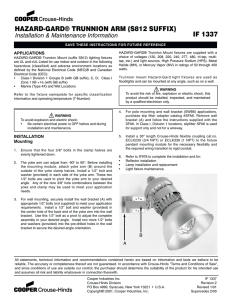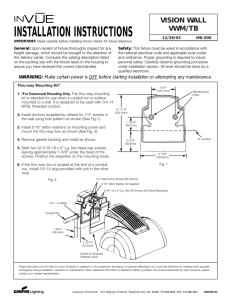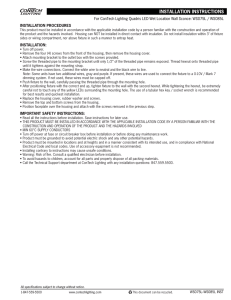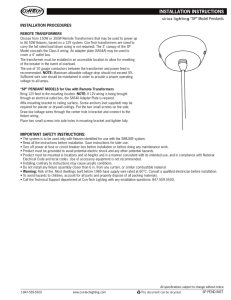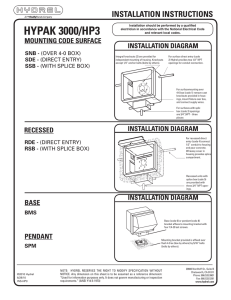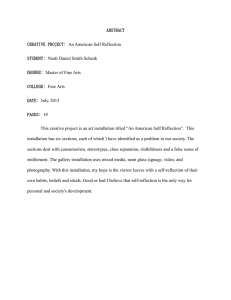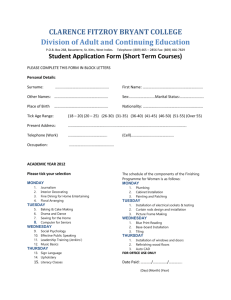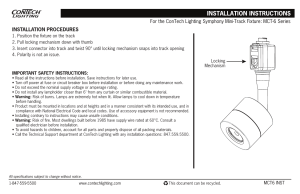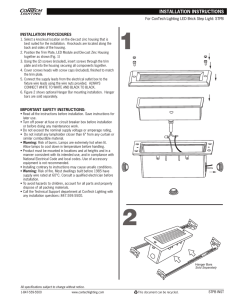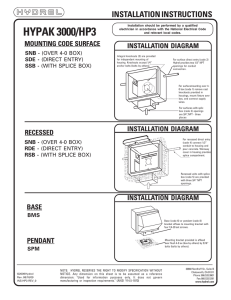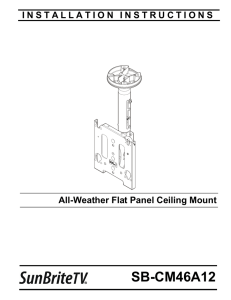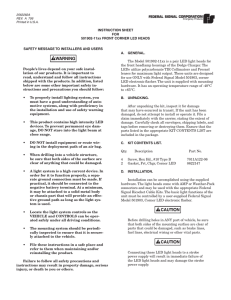LED Task Light - Class I, Division 2 TX2LW/120/240 IF 1530
advertisement
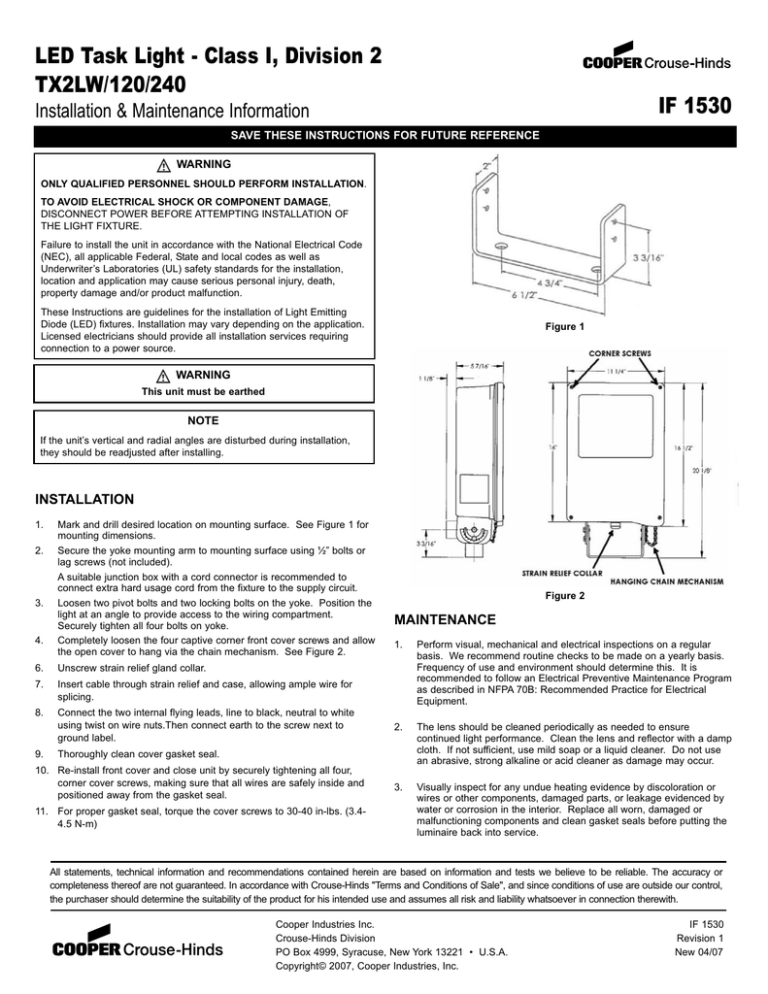
LED Task Light - Class I, Division 2 TX2LW/120/240 IF 1530 Installation & Maintenance Information SAVE THESE INSTRUCTIONS FOR FUTURE REFERENCE WARNING ONLY QUALIFIED PERSONNEL SHOULD PERFORM INSTALLATION. TO AVOID ELECTRICAL SHOCK OR COMPONENT DAMAGE, DISCONNECT POWER BEFORE ATTEMPTING INSTALLATION OF THE LIGHT FIXTURE. Failure to install the unit in accordance with the National Electrical Code (NEC), all applicable Federal, State and local codes as well as Underwriter’s Laboratories (UL) safety standards for the installation, location and application may cause serious personal injury, death, property damage and/or product malfunction. These Instructions are guidelines for the installation of Light Emitting Diode (LED) fixtures. Installation may vary depending on the application. Licensed electricians should provide all installation services requiring connection to a power source. Figure 1 WARNING This unit must be earthed NOTE If the unit’s vertical and radial angles are disturbed during installation, they should be readjusted after installing. INSTALLATION 1. 2. 3. 4. Mark and drill desired location on mounting surface. See Figure 1 for mounting dimensions. Secure the yoke mounting arm to mounting surface using ½” bolts or lag screws (not included). A suitable junction box with a cord connector is recommended to connect extra hard usage cord from the fixture to the supply circuit. Loosen two pivot bolts and two locking bolts on the yoke. Position the light at an angle to provide access to the wiring compartment. Securely tighten all four bolts on yoke. Completely loosen the four captive corner front cover screws and allow the open cover to hang via the chain mechanism. See Figure 2. 6. Unscrew strain relief gland collar. 7. Insert cable through strain relief and case, allowing ample wire for splicing. 8. Connect the two internal flying leads, line to black, neutral to white using twist on wire nuts.Then connect earth to the screw next to ground label. 9. Figure 2 MAINTENANCE 1. Perform visual, mechanical and electrical inspections on a regular basis. We recommend routine checks to be made on a yearly basis. Frequency of use and environment should determine this. It is recommended to follow an Electrical Preventive Maintenance Program as described in NFPA 70B: Recommended Practice for Electrical Equipment. 2. The lens should be cleaned periodically as needed to ensure continued light performance. Clean the lens and reflector with a damp cloth. If not sufficient, use mild soap or a liquid cleaner. Do not use an abrasive, strong alkaline or acid cleaner as damage may occur. 3. Visually inspect for any undue heating evidence by discoloration or wires or other components, damaged parts, or leakage evidenced by water or corrosion in the interior. Replace all worn, damaged or malfunctioning components and clean gasket seals before putting the luminaire back into service. Thoroughly clean cover gasket seal. 10. Re-install front cover and close unit by securely tightening all four, corner cover screws, making sure that all wires are safely inside and positioned away from the gasket seal. 11. For proper gasket seal, torque the cover screws to 30-40 in-lbs. (3.44.5 N-m) All statements, technical information and recommendations contained herein are based on information and tests we believe to be reliable. The accuracy or completeness thereof are not guaranteed. In accordance with Crouse-Hinds "Terms and Conditions of Sale", and since conditions of use are outside our control, the purchaser should determine the suitability of the product for his intended use and assumes all risk and liability whatsoever in connection therewith. Cooper Industries Inc. Crouse-Hinds Division PO Box 4999, Syracuse, New York 13221 • U.S.A. Copyright© 2007, Cooper Industries, Inc. IF 1530 Revision 1 New 04/07
